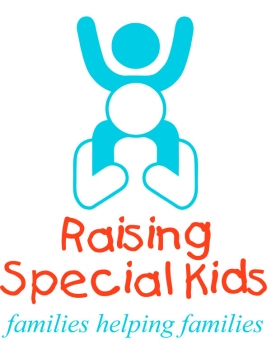- Education Topics
- Achievement Gap
- Alternative Education
- American Education Awards
- Assessment & Evaluation
- Education during COVID-19
- Education Economics
- Education Environment
- Education in the United States during COVID-19
- Education Issues
- Education Policy
- Education Psychology
- Education Scandals and Controversies
- Education Reform
- Education Theory
- Education Worldwide
- Educational Leadership
- Educational Philosophy
- Educational Research
- Educational Technology
- Federal Education Legislation
- Higher Education Worldwide
- Homeless Education
- Homeschooling in the United States
- Migrant Education
- Neglected/Deliquent Students
- Pedagogy
- Sociology of Education
- Special Needs
- National Directories
- After School Programs
- Alternative Schools
- The Arts
- At-Risk Students
- Camps
- Camp Services
- Colleges & Universities
- Counties
- Driving Schools
- Educational Businesses
- Financial Aid
- Higher Education
- International Programs
- Jewish Community Centers
- K-12 Schools
- Language Studies
- Libraries
- Organizations
- Preschools
- Professional Development
- Prom Services
- School Assemblies
- School Districts
- School Field Trips
- School Health
- School Supplies
- School Travel
- School Vendors
- Schools Worldwide
- Special Education
- Special Needs
- Study Abroad
- Teaching Abroad
- Volunteer Programs
- Youth Sports
- For Schools
- Academic Standards
- Assembly Programs
- Blue Ribbon Schools Program
- Educational Accreditation
- Educational Television Channels
- Education in the United States
- History of Education in the United States
- Reading Education in the U.S.
- School Grades
- School Meal Programs
- School Types
- School Uniforms
- Special Education in the United States
- Systems of Formal Education
- U.S. Education Legislation
- For Teachers
- Academic Dishonesty
- Childcare State Licensing Requirements
- Classroom Management
- Education Subjects
- Educational Practices
- Interdisciplinary Teaching
- Job and Interview Tips
- Lesson Plans | Grades
- Professional Development
- State Curriculum Standards
- Substitute Teaching
- Teacher Salary
- Teacher Training Programs
- Teaching Methods
- Training and Certification
- For Students
- Academic Competitions
- Admissions Testing
- At-Risk Students
- Career Planning
- College Admissions
- Drivers License
- Educational Programs
- Educational Television
- High School Dropouts
- Higher Education
- School Health
- Senior Proms
- Sex Education
- Standardized Testing
- Student Financial Aid
- Student Television Stations
- Summer Learning Loss
Raising Special Kids

Basic Information
Address: 5025 E Washington St #204
Phoenix, AZ 85034
Phone Number: 602-242-4366
Fax Number: 602-242-4306
Email: info@raisingspecialkids.org
Additional Information
Executive Director: Joyce Millard Hoie
Service Description: Support for families of children with disabilities and special health care needs
Mission Statement:
The mission of Raising Special Kids is to improve the lives of children with disabilities by providing families with parent to parent support, training, information, and individual assistance.
Programs and services are offered free of charge, in English and Spanish, without regard to the child’s disability, age, family income, qualifying conditions or other eligibility factors.
Membership Fee: none
Eligibility Requirements: none
Area Served: Arizona
Hours of Operation/Schedule: Mon - Th 8-5, Fri 8-4:15
Services Offered:
Parent to Parent mentoring, workshops on Special Ed & parenting issues,
Parent to Parent mentoring, workshops on Special Ed & parenting issues,
Fundraisers: Dandelion Golf Classic, 09/26/2009 6:30 AM
History:
2009 is 30th anniversary
Detailed Organization Information:
Raising Special Kids is a non-profit organization of families helping families of children with disabilities and special health needs in Arizona. All programs and services are provided to families free of charge. At all ages and stages of a child's development, Raising Special Kids supports parents through:
- Parent-to-Parent programs match new families with experienced parents through our trained volunteer network
- Special Education information, individual IEP consultation, training, and problem-solving support
- Parent leadership development opportunities. Family Faculty support the training of health professionals; serve on boards, councils, and commissions to represent the family perspective
- Community outreach supports families of diverse language and culture with services in rural areas and for tribal families. Newsletters are distributed to more than 13,000 parents and professionals
- Partnership between parents and professionals including information and training on family-centered care, and other programs that support professionals in health, education and social services.
...and much more.
Slogan: families helping families





